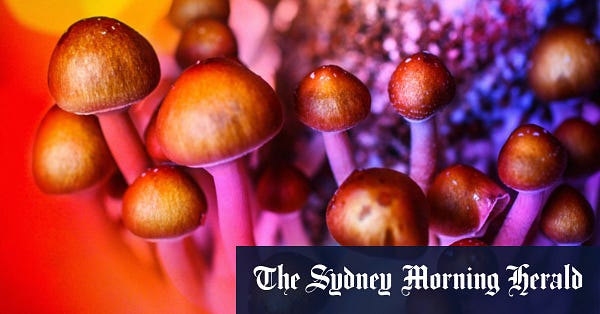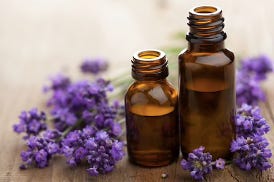Australia becomes first country to approve psilocybin and MDMA as medicine; a death knell for mail-order ketamine; and in psilocybin therapy, it’s not just about the psilocybin
Plus: The State of Psychedelics: Trouble in Colorado, BC’s new decriminalization policy goes into effect, and LSD storytelling
Happy Friday, and welcome back to The Microdose, an independent journalism newsletter supported by the U.C. Berkeley Center for the Science of Psychedelics.
Australia becomes first country to approve psilocybin and MDMA as medicine
Last Friday, Australia’s Therapeutic Goods Administration announced that psychiatrists will be able to prescribe MDMA and psilocybin to patients diagnosed with PTSD and/or treatment-resistant depression. This makes Australia the first country to officially recognize these substances as therapeutic drugs.


The policy will take effect July 1, according to a TGA press release, and prescribing psychiatrists will need to apply for authorization from the agency. The decision was influenced by a request submitted to TGA to reclassify psilocybin under the country’s Poisons Standard rules, a 2021 TGA-commissioned, expert-led literature review on the therapeutic value of the two drugs, and public comment, the TGA says.
Researchers, practitioners, and activists scrambled to make sense of the announcement and what it would mean for access to psychedelics in the country — and whether Australia might inspire other countries to follow suit. “I was extremely surprised, as has been essentially everyone I’ve spoken to,” says Courtney Walton, a clinical psychologist at the University of Melbourne who co-authored a paper exploring whether psychedelics might be used to treat athletes. (Read The Microdose’s 5 Questions for Walton.)
Paul Liknaitzky, who runs Australia’s first clinical psychedelic lab at Monash University and co-authored the paper on athletes, published a piece in The Conversation this week, detailing how quickly psychedelic science has gained traction in the country. He reports that he and many other clinicians are cautiously optimistic. “There are the concerns: that evidence remains inadequate, and moving to clinical service is premature,” he writes. “That incompetent or poorly equipped clinicians could flood the space; that treatment will be unaffordable for most; that formal oversight of training, treatment, and patient outcomes will be minimal or ill-informed.”
Other researchers also expressed uneasiness about TGA’s announcement. "I have a significant degree of caution about this decision because these treatments are not well established at all for a sufficient level of broad-scale implementation. Substantial further research needs to be done,” says Susan Rossell, a cognitive neuropsychologist heading up Swinburne University’s clinical trial investigating the use of psilocybin to treat depression. “We've got no data on long-term outcomes at all, so that worries me a lot, which is one of the reasons why I'm doing my very large study."
Rhys Cohen, an Australian cannabis policy expert, raised the possibility that TGA’s announcement could stymie patient access to psilocybin and MDMA and new research on the drugs:

A death knell for online, mail-order ketamine
Last week, the Biden Administration announced it will end the federal COVID-19 public health emergency declaration. That declaration allowed Americans to access free COVID vaccines and tests, and it also made it easier for healthcare providers to offer telehealth services and prescribe medications without seeing patients in person. Those changes have been a boon for the burgeoning mail-order ketamine industry.
The emergency declaration ends on May 11, after which new patients will need to be seen in person before being prescribed medicine, including ketamine. But, attorney Griffen Thorne writes in Harris Bricken’s Psychedelic Law Blog, “less clear is how the federal government (and don’t forget states!) will handle physician-patient relationships developed during the public health emergency declaration solely by telehealth. Nobody really knows yet. This uncertainty is bad news for anyone in the ketamine telehealth industry.”
Want the latest psychedelics news? Subscribe! (It’s free!)
In psilocybin therapy, it’s not just about the psilocybin
In recent years, researchers and clinicians have stressed the importance of set (a person’s mindset and intentions), and setting (the location, who’s present, and the surroundings) when administering psychedelic therapy. But what role do those non-psychedelic elements of therapy play in participants’ experiences? A new paper published in the Kennedy Institute of Ethics Journal analyzed written narratives from participants in a Johns Hopkins study using psilocybin to treat smoking cessation.
In addition to psilocybin sessions, participants received cognitive behavioral therapy, and the researchers — an interdisciplinary group of anthropologists, psychologists, and neuroscientists — explored how aspects of those therapy sessions influenced participants’ outcomes. To do that, they looked over participants’ written notes about their psilocybin therapy, and noticed that they commonly referenced the use of elements such as scented oil, and the use of mantras. These kinds of details are typically not mentioned in published research papers. “Such omissions are an artifact of the disciplinary norms of quantitatively oriented pharmacology journals, which condense methods sections and de-emphasize non-drug factors,” the authors write.


Moreover, the authors observe that some of the revelations reported by participants were primed by guided imagery exercises and beliefs (“become a nonsmoker”) offered by their therapists during treatment (and included in the treatment manual that served as a basis for therapists’ sessions). “Our research has shown that the analysis of psychedelic clinical trials should take a critical approach to set and setting that examines the impact of the full treatment context on clinical outcomes,” the authors conclude. “Such an approach requires attending to the assumptions embedded in the treatment manuals and the unique psychotherapeutic modalities that are used alongside psychedelic substances to enact behavioral change.”
The State of Psychedelics: Trouble in Colorado, and BC’s new decriminalization policy goes into effect
In November, a majority of Coloradoans voted in favor of Proposition 122, which tasks the state’s Department of Regulatory Agencies (DORA) with establishing rules for psilocybin services in the state. But this week, the Colorado Sun reports that DORA officials aren’t sure how to do that and lack the financial and personnel resources to see it through.
Currently, the agency manages professional licenses for businesses including accounting firms, taxi drivers, dentists, nurses, podiatrists, and funeral contract services. Recently, the agency submitted a budget request to the state legislature asking for $700,000, writing that psilocybin services are “unlike anything else the department regulates,” and that it “has no resources or expertise to begin implementation of this expansive new program involving substances with agricultural, controlled substance, chemical/scientific and facility issues.”
Meanwhile in Canada: Last June, we reported that the Canadian government would allow adults to possess up to 2.5 grams of MDMA, cocaine, opioids, and methamphetamine without fear of arrest or criminal charges starting in 2023. That period began last week and will extend for three years, until January 31, 2026. This new policy “will help reduce the barriers and stigma that prevent people from accessing life-saving supports and services,” according to the BC government’s website. “Substance use is a public health matter, not a criminal justice issue.”
LSD storytelling
We know psychedelics have the power to change what we see and hear — but do they also change the way we talk? A new study from the March 2023 issue of European Neuropsychopharmacology investigates how LSD affected 24 Brazilian participants’ speech. The participants took part in two dosing sessions and were given either a small dose (50 μg) of LSD, or a placebo. In the hours after they received doses, participants were interviewed about how they felt, and asked to tell a story about four sets of images presented on a screen. Those image sets varied from wholesome (babies, ice cream, puppies), to ambiguous (amorphous black and white illustrations.)
Researchers analyzed participants’ vocabulary, the structure of their speech, and the semantic distance between words, which is a measure of how related words’ meanings are to each other. (For instance, “puppy” and “dog” would have a close semantic distance, but “puppy” and “vector” would have a greater distance.) Though LSD is often associated with greater creativity, participants’ speech on LSD was less creative than those given a placebo: people under the influence of LSD tended to use simpler vocabulary, more disconnected sentence structures, and semantically similar words. “Language under LSD seemed to reflect cognitive impairments in storytelling,” the researchers wrote.
Psychedelic churches are on the rise, and so are concerns about their unregulated psychedelic ceremonies, the Associated Press reports.
Psychedelic Alpha convened a panel of three experts — MAPS’s Hailey Gilmore, Imperial College London’s Balázs Szigeti, and Stanford’s Boris Heifets — to discuss methodological issues and study design in psychedelics research.
Before Shroom House, the short-lived mushroom business in Portland, was raided by local police, Willamette Week bought products there. With the help of a local lab, the publication tested the mushrooms and gummies they bought and discovered that the latter contained no psilocybin or psilocin.
University of California, Davis announced its new Institute for Psychedelics and Neurotherapeutics, which aims to conduct psychedelics research and “translate it into safe and effective treatments.”
In the Washington Post, a psychotherapist provides tips for moms microdosing mushrooms.
You’re all caught up! Have a great weekend. We’ll be back in your inbox on Monday with a new issue of 5 Questions.
If you know anyone who might like the latest on psychedelics in their inbox, feel free to forward this to them, or click below.
Got tips? Email us at themicrodose@berkeley.edu.









I would take issue with the opening sentence of this article which states that ‘recently researchers and clinicians are paying more attention to set and setting….”
Set and setting have been the bedrock since Saint Timothy established the ground rules of Set Setting and Dosage back in the day.
To which, btw, I add Selection and Skills.
Selection referring to the participant and the molecule, and Skills referring to the skills both therapist and patient must acquire in order to work well with them.
Regarding MDMA therapy. I would recommend that practitioners prepare clients to receive this treatment by following protocols to avoid unpleasant physical and mental after effects of taking this medication. These can include insomnia, a change in speech, constipation and depression. For some survivors of PTSD, this may not be the best intervention.